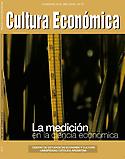Implicit Assumptions when Measuring in Economics: The Human Development Index (HDI) as a Case Study
Keywords:
HUMAN DEVELOPMENT, UNITED NATIONS, INDEXES, MEASUREMENTAbstract
In the present study, the authors analyze the HDI of the United Nations Human Development Program. They intend to show that there are underlying technical and practical assumptions. Not all of them, however, are sufficiently explained or argued. First, Adrogué and Crespo discuss why they consider it as a relevant case of study. Then, the history and the description of the HDI are provided. Thirdly, the difficulties of the index numbers and specifically of the HDI, are explained. Next, the underlying practical assumptions are shown. Finally the authors present their main conclusions and some suggestions about how they believe the index can be improvedDownloads
References
Alkire, Sabina (2002). Valuing Freedoms. Sen’s Capabilities Approach and Poverty Reduction, Oxford University Press, Oxford.
Allen, R. G. D. (1951). Statistics for Economists, Hutchison, London.
Anand, Sudhir and Amartya Sen (1994). “Human Development Index:
Methodology and Measurement”, Occasional Papers, 12, Human Development Report Office, New York.
Anand, Sudhir and Amartya Sen (2000). “The Income Component of the Human Development Index”, Journal of Human Development, 1/1, pp. 83-106.
Anderson, Elizabeth (1993). Value in Ethics and Economics, Harvard University Press.
Aristotle (1954). Nicomachean Ethics. Translated and Introduced by Sir David Ross, University Press, Oxford, 1954.
Bagolin, Izete and Flavio Comim (2008). “Human Development Index (HDI) and its family of indexes: an evolving critical review”, Revista de Economia, 34/2, pp. 7-28.
Banzhaf, H. Spencer (2001). “Quantifying the Qualitative: Quality-Adjusted Price Indexes in the United States, 1915-61”, in The Age of Economic Measurement, HOPE Annual Supplement, edited by
Judy L. Klein and Mary S. Morgan, pp. 345-370.
Boumans, Marcel and John Davis (2009). Economic Methodology, Amsterdam School of Economics, History and Methodology Group, Amsterdam.
Boumans, Marcel (2001). “Fisher’s Instrumental Approach to Index
Numbers” in The Age of Economic Measurement, HOPE Annual Supplement, edited by Judy L. Klein and Mary S. Morgan, pp. 313-344.
Comim, Flavio (2008). “Measuring capabilities”, in F. Comim, M. Qizilbash an S. Alkire (eds.), The Capability Approach. Concepts, Measures and Applications, Cambridge University Press, pp. 157-200.
Davis, John B. and Solange Regina Martin (2007). “Identity and Democracy: Linking Individual and Social Reasoning”, mimeo.
De Langhe, Rogier (2009). “Mainstream Economics: Searching Where the Light is”, Journal of Post-Keynesian Economics 32/1.
Finkelstein, Ludwik (1982). “Theory and Philosophy of Measurement”, in P. H. Sydenham (ed.), Handbook of Measurement Science, vol. 1, John Wiley & Sons, New York et alii, pp. 1-30.
Fukuda-Parr, Sakiko (2003). “The Human Development Paradigm:
Operationalizing Sen’s Ideas on Capabilites”, Feminist Economics 9 (2-3), pp. 301-317.
Keynes, John Maynard (1921). A Treatise on Probability, The Collected Writings of John Maynard Keynes, MacMillan, London.
Keynes, John Maynard (1973). The General Theory and After: Part II. Defence and Development, The Collected Writings of John Maynard Keynes, Volume XIV, MacMillan, London.
Kraut, Richard (2006). ‘How to Justify Ethical Propositions: Aristotle’s Method”, in Richard Kraut (ed.), The Blackwell Guide to Aristotle’s Nicomachean Ethics, Blackwell Publishing, Oxford, pp. 76-95.
Morgan, Mary S. (2001). “Making Measuring Instruments”, in The Age of Economic Measurement, HOPE Annual Supplement, edited by Judy L. Klein and Mary S. Morgan, pp. 235-251.
Morgenstern, Oskar (1963). On the Accuracy of Economic Observations, second Edition completely revised, Princeton University Press, Princeton.
Nussbaum, Martha C. (2001). “The Protagoras: A Science of Practical Reasoning”, in Elijah Millgram (ed.), Varieties of Practical Reasoning, The MIT Press, Cambridge and London, pp. 153-201.
Nussbaum, Martha C. (2003). “Capabilities as Fundamental Entitlements: Sen and Social Justice”, Feminist Economics 9/2-3, pp. 33-59.
Sen, Amartya (1992). Inequality Reexamined, Oxford University Press.
Sen, Amartya (1999). Development as Freedom, Anchor Books, New York.
Sen, Amartya (2002). Rationality and Freedom, The Belknap Press of Harvard University Press, Cambridge, Massachusetts.
Sen, Amartya (2009). The Idea of Justice, The Belknap Press of Harvard University Press, Cambridge, Massachusetts.
Stanton, Elizabeth (2007). “The Human Development Index: A History”,
Working Paper Series 127, Political Economy Research Institute, University of Massachusetts, Amherst.
Streeten, Paul (1994). “Human Development: Means and Ends”, The American Economic Review, 84/2, pp. 232-237.
Suppes, Patrick (2000). “Measurement, Theory of ”, en Concise Routledge Encyclopedia of Philosophy, Routledge, London.
United Nations Development Program (UNDP) (1990). Human Development Report 1990, Oxford University Press.
United Nations Development Program (UNDP) (1991). Human Development Report 1991, Oxford University Press.
United Nations Development Program (UNDP) (1993). Human Development Report 1993, Oxford University Press.
United Nations Development Program (UNDP) (2009). Human Development Report 2009, Palgrave Macmillan, Basingstoke and New York.
Wieland, Wolfgang (1996). “El individuo y su identificación en el mundo de la contingencia”, en id. La razón y su praxis, traducción e introducción de A. Vigo, Biblos, Buenos Aires, pp. 117-146.
Downloads
Published
How to Cite
Issue
Section
License













